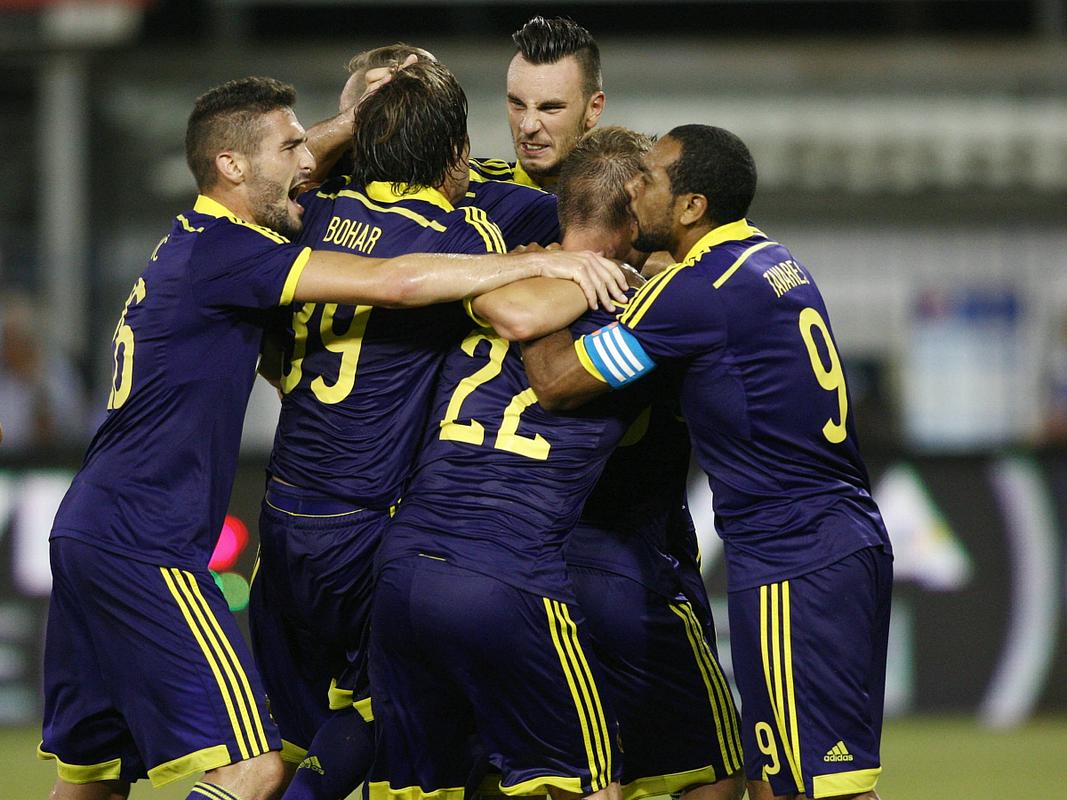
For many sports fans, the recent qualification of NK Maribor for the Champions League group stage was one of the sporting highlights of the decade. The club from Slovenia’s second biggest town has proven that it’s good enough to play against the giants of European soccer, while reminding the world that a small and underfunded team can achieve great things with a big heart and plenty of passion.
NK Maribor is a fairly new club compared to most of its Champions League rivals. It was founded in 1960 as a replacement for an older Maribor-based club, but it began to outperform its older rivals right from the start: Within six years, it managed to join Yugoslavia’s first league and became the pride of its working-class hometown. A major Yugoslav bribery scandal that tarnished its reputation in the 1980s, but happier times returned after Slovenia’s independence.
In the mid-90s, NK Maribor consolidated its position as the number one club in the newly established Slovenian League. Then, in 1999, NK Maribor surprised observers by becoming the first Slovenian club to qualify for the Champions League, Europe’s most prestigious soccer competition. As a small club with a big heart, it won the hearts of soccer fans throughout Slovenia and beyond.
But darker clouds were on the horizon. By 2004, the club found itself in major financial difficulties. Because of its debt, it was no longer to purchase competitive players, and it quickly lost its leading position in Slovenia. Its championship season seemed only a distant memory.
It was of Zlatko Zahovič, a former star player on the Slovenian national team, who helped to change Maribor’s fortunes when he became the manager of NK Maribor. With inventive transfers – involving strategic trades of key players --, Zahovič was able to improve the club’s finances. Often, the team had to trade its promising teams to other club in order to raise money, but the strategy worked and NK Maribor – with mainly Slovenian-born players -- again became the leading club in Slovenia.
Throughout the years, NK Maribor became well-known for the passion of its fans. In a depressed post-industrial town with high employment, the club was one of the few institutions that local residents could embrace with pride. In good time and in bad, the club’s fans – known as “the Violets” – stuck by their team, filling the local stadium and showering their hometown heroes with adoration. Massive crowds gathered to greet their team even in the early hours of the morning, and tickets for major tournaments would sell out in minutes.
After three seasons in the Europa League, NK Maribor qualified for the Champions League, where it will take on clubs with far largest budgets than its own. Its annual budget is far less than some individual star players make in a year, but what NK Maribor has in its favor is the pride of its home town, and its informal – but well-earned -- status as Slovenia’s team.


































































